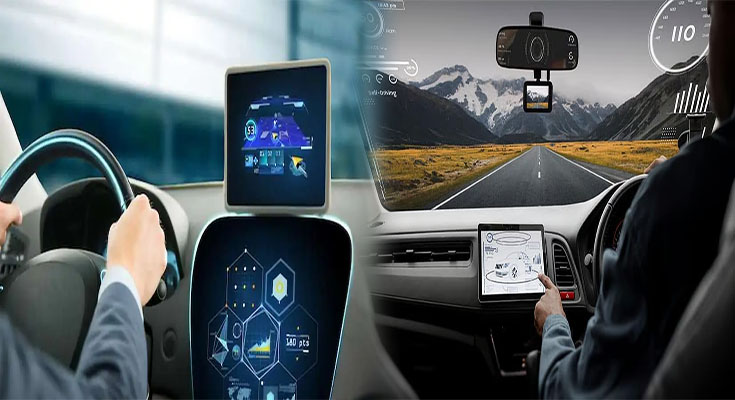The automotive industry is at a critical juncture, poised on the brink of a transformative era driven by two revolutionary technological advancements: electric vehicle (EV) technology and autonomous driving. As these innovations continue to evolve and intersect, they are reshaping the future of transportation, redefining the driving experience, and paving the way for a more sustainable and connected world.
Electric Vehicle Technology: Accelerating Towards Sustainable Mobility
Electric vehicles have emerged as a linchpin of sustainable mobility, offering an environmentally friendly alternative to traditional internal combustion engine vehicles. The future of EV technology is marked by groundbreaking developments that transcend the limitations of range anxiety, charging infrastructure, and affordability. Key trends shaping the evolution of electric vehicles include:
1. Advancements in Battery Technology:
The development of high-energy-density batteries, solid-state batteries, and rapid charging capabilities is revolutionizing the performance and viability of electric vehicles. These advancements are extending the range of EVs, reducing charging times, and enhancing overall efficiency, thereby addressing some of the primary concerns associated with electric vehicle adoption.
2. Expansion and Diversification of EV Models:
The automotive industry is witnessing a surge in the production and diversification of electric vehicle models, spanning various vehicle segments and catering to a broad spectrum of consumer preferences. From compact urban EVs to high-performance electric sports cars and electric SUVs, the proliferation of EV options signifies a paradigm shift towards electrification as a mainstream choice for drivers.
3. Growth of Charging Infrastructure:
The proliferation of charging infrastructure, including fast-charging stations, wireless charging options, and home charging solutions, is rapidly expanding, bolstering the appeal and practicality of electric vehicles. This growth in charging infrastructure is crucial for alleviating range anxiety and facilitating convenient access to charging facilities, thereby bolstering consumer confidence in adopting electric vehicles.
Autonomous Driving: Redefining the Conception of Mobility
Autonomous driving represents a groundbreaking leap in transportation, promising to redefine the paradigm of mobility, safety, and efficiency. The future of autonomous driving is characterized by rapid advancements in artificial intelligence, sensor technologies, and infrastructure integration. Key trends shaping the trajectory of autonomous driving include:
1. Development of Advanced Driver-Assistance Systems (ADAS):
The integration of advanced driver-assistance systems, such as adaptive cruise control, lane-keeping assistance, and automatic emergency braking, is laying the groundwork for the gradual progression towards higher levels of autonomy. These systems enhance vehicle safety, mitigate driver fatigue, and serve as stepping stones towards full autonomy.
2. Evolution Towards Level 4 and 5 Autonomy:
The evolution of autonomous driving is driving towards the realization of higher levels of autonomy, encompassing fully self-driving vehicles capable of operating without human intervention in diverse environments and scenarios. Achieving Level 4 and Level 5 autonomy requires the convergence of cutting-edge sensor technologies, robust computing power, and regulatory frameworks to ensure safe and reliable autonomous operation.
3. Integration with Smart City Infrastructure:
The integration of autonomous vehicles with smart city infrastructure, including dedicated communication networks, traffic management systems, and sensor-equipped roadways, is instrumental in enabling seamless and harmonized autonomous mobility. This integration facilitates enhanced traffic flow, optimized route planning, and improved safety in urban environments.
The Synergy of Electric and Autonomous Driving: Forging a Sustainable and Connected Future
The convergence of electric vehicle technology and autonomous driving represents a convergence point where the visions of sustainable mobility and intelligent transportation intersect. The synergistic potential of these two transformative technologies is poised to revolutionize the way people move, commute, and interact with their vehicles, reshaping urban landscapes and setting new benchmarks for environmental stewardship and convenience.
The future of electric vehicle technology and autonomous driving holds unprecedented promise for a more sustainable, efficient, and interconnected transportation ecosystem. As electric vehicles continue to advance in range, affordability, and charging infrastructure, and autonomous driving progresses towards higher levels of autonomy and integration with smart cities, we stand on the cusp of a new era of transportation that transcends the boundaries of conventional mobility, heralding a future that is both electrifying and autonomous.

